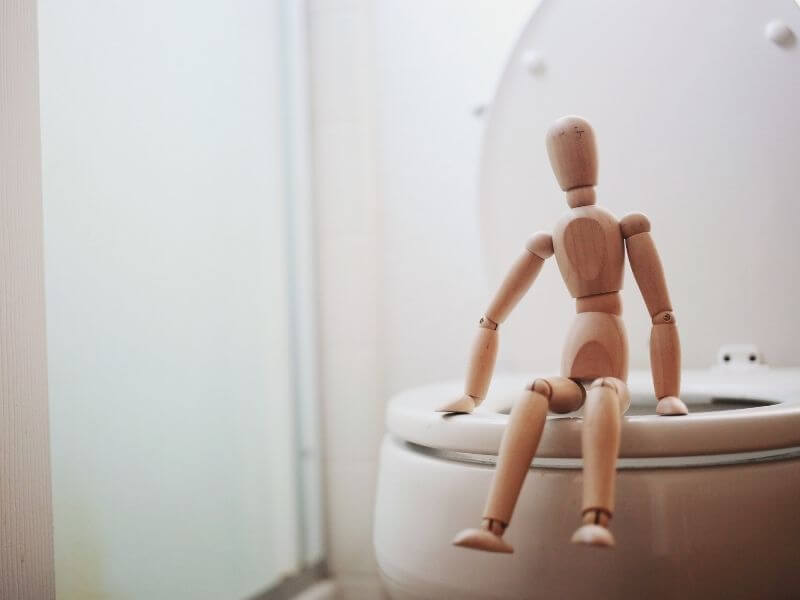There’s probably few among us who have never once leaked a little urine by mistake. But if this is a regular occurrence for you, then you may have a manageable condition called stress urinary incontinence.
Stress urinary incontinence is a condition that impacts many women, where they accidentally leak urine—specifically when their bladder is under stress due to physical movement or activity. ‘Stress’ refers to this physical stress, and not psychological stress.
That said, while urinary stress incontinence is not life threatening, it can dramatically impact the quality of your life, including your mental health. Thankfully, there are lots of treatment options available—here’s what you need to know!
What Is Stress Urinary Incontinence?
Incontinence is the inability to control either your bladder or your bowels. Urinary incontinence impacts your bladder, so that you unintentionally lose urine. And stress urinary incontinence (SUI) happens when sudden stress or pressure on your bladder causes you to lose urine.
SUI can be mild or severe, and can be caused by a variety of activities, such as:
- Coughing
- Sneezing
- Laughing
- Exercising, running, and jumping
- Lifting heavy objects
- Having sex
If you have more severe SUI, you may also experience leakage from simpler activities like standing up, bending over, or walking.
If you have SUI, you are not alone—1 in 3 will have this condition at some point in their life.1
Check out the following resources if you would like to learn more about incontinence:
- Busting Incontinence Myths
- The Fallout of Incontinence—Why Seeking Help Is Self Care
- Water Intake and Incontinence: How Much Should You Be Drinking?
- What Happens To Your Bladder When you Drink Seltzer Water Every Day?
- Using Botox To Treat Bladder Problems
- When To See A Doctor About Your Incontinence
Is Stress Urinary Incontinence The Same As Overactive Bladder?
Stress urinary incontinence and overactive bladder are often confused for each other, but these are different conditions. Urinary incontinence is the inability to fully control your bladder. Overactive bladder (OAB), on the other hand, is about frequent and sudden urges to urinate that you may or may not be able to control.
It’s important to note that over half of women with SUI also have OAB.2 Both are conditions that cause many women to suffer in silence. Meanwhile, they can be easily managed when you receive the right medical care.
What Causes SUI?
Bladder control is one of the many jobs of your pelvic floor, the complex muscles that run between your pubic bone and your tailbone. When these muscles and/or your urinary sphincter lose strength, it can lead to SUI.
SUI in women can be caused by childbirth, while chronic coughing, obesity, smoking, and years of high-impact activities like running and jumping can be contributing factors. Age, body weight, pelvic surgery, and vaginal and/or forceps delivery can all be risk factors. 3
Some types of pelvic organ prolapse can cause bladder leakage, or you may have another underlying cause or contributing factor like a urinary tract infection (UTI). That’s why it’s important to seek medical attention to get a proper diagnosis and treatment plan.
Treatment
Incontinence can lead to social anxiety and isolation, it can impact your self esteem and your relationships, it’s expensive, and it can get worse.
So that’s the bad stuff! The good stuff? When you seek help, you should be able to treat your SUI or manage your SUI symptoms. In other words, there’s no reason to keep suffering in silence!
Treatment will look different depending on the severity of your SUI, what is causing it, and your own medical history. Treatment can take the form of lifestyle changes that may include strengthening your pelvic floor muscles with Kegels. You may also be a candidate for medical devices or surgery.
There are also products available to non-invasively treat incontinence. The INNOVO Urinary Incontinence Kit—cleared by the FDA—is a pair of “smart shorts” designed to strengthen your pelvic floor muscles from the inside out. Using the kit, you perform 180 perfect Kegels in 30 minutes. A clinical study guided by the FDA had amazing results: 87% of women were defined as dry after just 12 weeks, and 90% of users would recommend the therapy to others.
You don’t need to wait for your symptoms to become severe to seek treatment. In fact, if you have stress urinary incontinence, early treatment can be beneficial, especially when looking at lifestyle interventions.
So if you think you may have SUI, a better life awaits! Speak to your doctor ASAP, or use our Physician Finder to find a pelvic health specialist in your area.




















